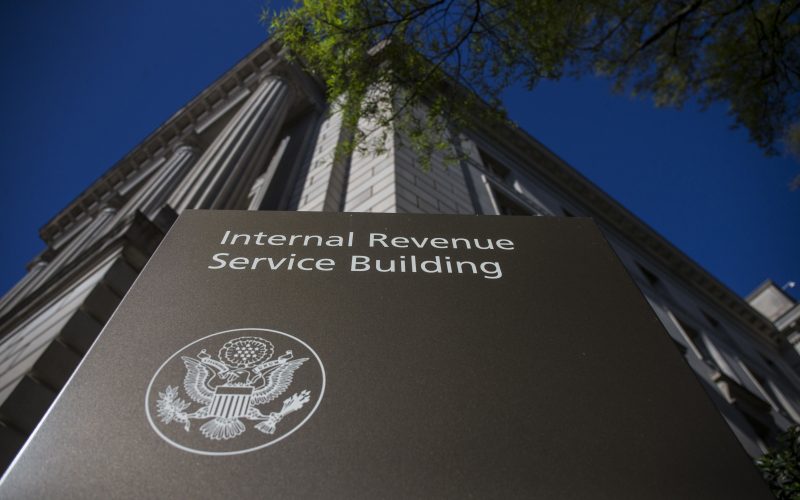As you gear up for tax season, you might find yourself wondering about the Internal Revenue Service’s schedule.
Specifically, if you need assistance from the IRS or plan to visit an office, you might ask, “Is the IRS open on Valentine’s Day?” The answer is yes, the IRS is open on February 14th.
Despite the holiday, the IRS operates as usual, providing you with the services and support you need to handle your tax matters.
Valentine’s Day does not affect the IRS’s operational hours, and it remains a regular workday for the agency.
This is important for you to know, especially if you’re planning to get a head start on filing your taxes or have inquiries regarding your tax return.
Remember, the deadline to file a 2023 tax return and pay any tax owed is April 15, 2024, so it’s crucial to stay on top of your tax preparation.
While Valentine’s Day may be a day of love and celebration, for the IRS, it’s business as usual, ensuring that every taxpayer can access the help they need when they need it.
Whether you’re filing early, seeking assistance, or have specific questions about your taxes, you can count on the IRS being available to assist you on this romantic holiday.
To make the most of your time, consider scheduling an appointment in advance if you plan to visit a local IRS office.
Is the IRS Open on Valentine’s Day?
Valentine’s Day might be a special day for many, but when it comes to the IRS, it’s business as usual.
Taxpayers may wonder whether this romantic holiday has any impact on the availability of IRS services.
Reassuringly, you can expect the IRS to maintain their customer service and other operations even on federal holidays that aren’t widely observed, such as Valentine’s Day.
The filing season typically commences at the end of January, which means by February 14, the IRS is already in full swing processing tax returns.
Therefore, if you want to get ahead on your taxes or if you have any questions regarding your tax situation, this could be a good time to reach out.
You can access various resources on the IRS website, which offers a comprehensive suite of tools and information to assist you with your filing needs.
Here’s a snapshot of what you can do on Valentine’s Day or any other working day during the filing season:
- Submit your tax return electronically through the web.
- Seek support from customer service over the phone or online.
- Utilize free tax preparation services via IRS Free File.
Remember that during the filing season, IRS offices typically follow their regular hours of operation unless a significant event or a widely observed federal holiday dictates otherwise.
So, you can confidently mark Valentine’s Day as a day to share love but also to engage with the IRS if needed.
IRS Operations on Valentine’s Day
Valentine’s Day may be a special date for personal celebrations, but it’s business as usual for the IRS.
They continue to process tax returns and provide taxpayer assistance.
Federal Holidays and the IRS Schedule
The IRS observes several federal holidays when their offices close and does not process paper tax returns; however, electronic submissions are not impacted.
These holidays typically include New Year’s Day, Martin Luther King Jr. Day, Presidents’ Day, and several others throughout the year.
Valentine’s Day is not a federal holiday, so the IRS remains open, and you can expect operations to continue as on any regular business day.
Valentine’s Day Specifics for Taxpayers
On February 14, whether you’re thinking of love or taxes, the IRS maintains its regular customer service hours.
You can reach out for assistance over the phone, on the web, or in person at a local Taxpayer Assistance Center.
Keep in mind that filing season is in full swing during this period, so if you have tax-related queries or need to file your tax returns, you don’t need to wait.
Your tax duties do not pause for Cupid’s arrow; taking care of them earlier can save you a heartache later.
Managing Your Taxes Around Holidays
During the holiday season, it’s crucial to keep track of tax-related deadlines and make use of all available resources and credits to optimize your tax filings.
Whether preparing for Valentine’s Day or any other holiday, understanding how these timeframes affect your tax responsibilities can save you stress and money.
Filing Taxes and Deadlines
April 18 is the key date for your federal tax return. If that date doesn’t fit into your schedule, you can file for an extension, which gives you until October 16 to submit your return.
However, remember that an extension to file isn’t an extension to pay any taxes owed.
The IRS e-file is the fastest way to file your taxes and set up direct deposit, which is the quickest method to receive your refund.
Tax Deductions and Credits
Take the time to review potential deductions like educator expenses or the higher education tuition and fees deduction that could lower your tax bill.
Schedule A is where you’ll itemize deductions if that is more beneficial than the standard deduction for your situation.
Don’t overlook the Earned Income Tax Credit (EITC) or the Additional Child Tax Credit (ACTC) if you qualify, as these can provide significant benefits to your financial health.
Online Resources and Assistance
IRS.gov is your go-to online resource for any questions you may have.
Tools like “Where’s My Refund?” can track your refund, and the Interactive Tax Assistant can guide you through tax law changes and answer specific questions.
If you face processing delays or need help with issues like a lost stimulus payment, free resources on IRS.gov and community tax assistance programs can offer the support you need.



